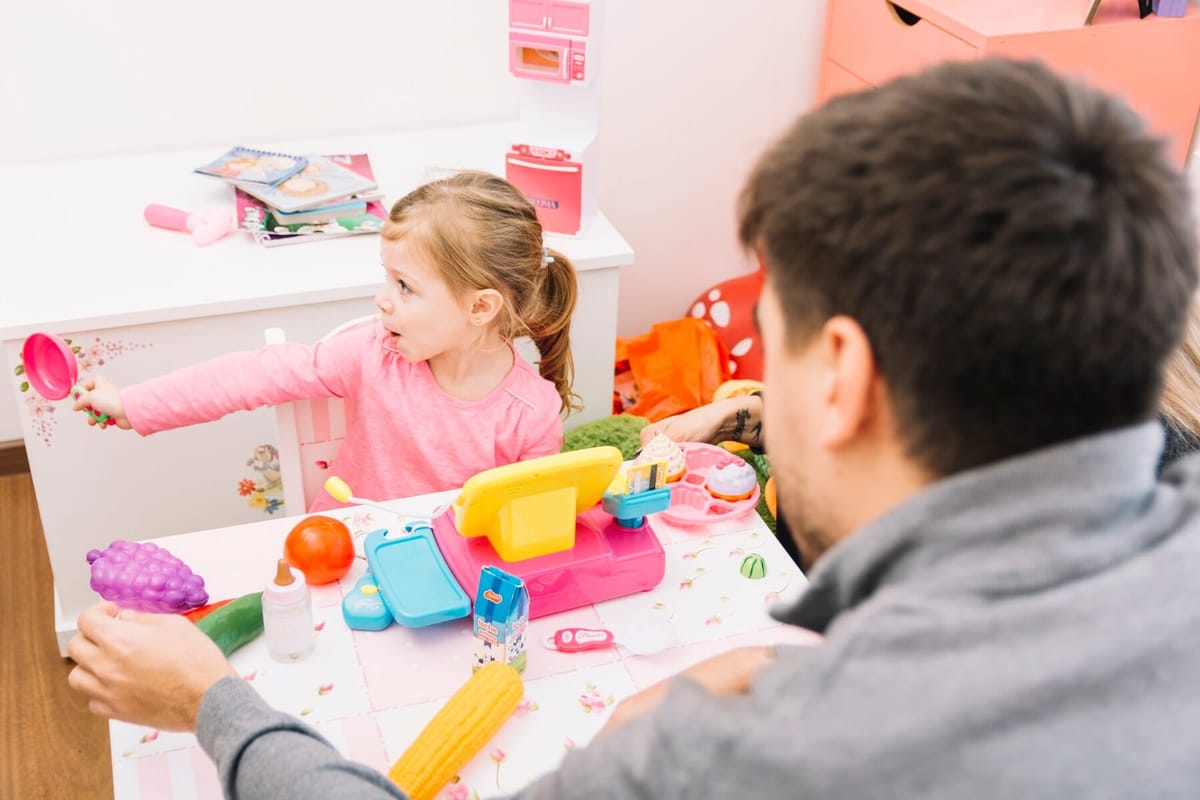Choosing the Right Daycare for Your Child: What to Look For

Choosing the right daycare for your child is one of the most important decisions you'll make as a parent. It’s not just about finding a place where your child can be watched while you're at work; it’s about selecting an environment that will nurture your child’s growth, development, and happiness. With so many options available, it can be overwhelming to know where to start. To help you make an informed decision, here are key factors to consider when selecting a daycare for your little one.
1. Accreditation and Licensing
The first step in choosing the right daycare is ensuring the facility is licensed and accredited. Licensing requirements vary by state or country, but generally, they ensure that the daycare meets certain safety, health, and educational standards. Accreditation from reputable organizations such as the National Association for the Education of Young Children (NAEYC) indicates that the daycare has gone above and beyond basic requirements to provide high-quality care and education.
2. Safety and Cleanliness
Safety should always be a top priority. Before enrolling your child, visit the daycare to inspect the environment. Check for:
- Secure entry points: Is the daycare building secure with restricted access? Are there policies in place to ensure only authorized individuals can pick up children?
- Cleanliness: Are the play areas, bathrooms, and eating areas clean and well-maintained?
- Childproofing: Are potential hazards (sharp objects, exposed electrical outlets, etc.) addressed in the environment?
You should also inquire about their emergency procedures, including how they handle medical emergencies, natural disasters, or evacuations.
3. Experienced and Caring Staff
The daycare staff are the heart of the facility, so you want to ensure they are not only qualified but also genuinely passionate about working with children. Check for:
- Qualifications: Are caregivers certified in first aid and CPR? Do they have early childhood education training or relevant experience?
- Child-to-staff ratio: Smaller ratios (e.g., one caregiver for every three to four infants) allow for more personalized attention and better care.
- Turnover rates: High turnover can be a red flag. Consistency in caregiving is important for creating a secure environment for your child.
- Staff attitude: Do the caregivers seem warm, patient, and attentive to the children's needs?
4. Curriculum and Activities
Daycare should be more than just a place to play and nap; it should provide an enriching environment that fosters learning and development. Look for a daycare that offers a curriculum or activities that match your child’s age and developmental stage. Some things to ask about include:
- Play-based learning: How does the daycare incorporate play into learning? Look for facilities that use structured play to teach cognitive, social, and emotional skills.
- Developmental goals: Does the daycare have a structured plan to promote your child's cognitive, language, motor, and social development?
- Diversity of activities: Does the program offer a mix of activities such as arts and crafts, outdoor play, music, reading, and more?
- Social skills: How does the daycare support your child in learning important social skills such as sharing, empathy, and conflict resolution?
5. Nutrition and Health Standards
Proper nutrition and good hygiene practices are essential for your child's well-being. Ask about:
- Meals and snacks: Does the daycare provide balanced meals and snacks, or will you need to pack your child’s lunch? Are they able to accommodate special dietary needs or allergies?
- Health policies: How does the daycare handle illnesses and medication? What’s their protocol for when a child gets sick or shows signs of illness?
- Hygiene practices: Are there clear practices in place for hand-washing, diapering, and cleaning toys and surfaces?
6. Location and Convenience
The daycare’s location should fit with your daily routine and be easy to get to. Consider:
- Proximity to home or work: Is the daycare conveniently located on your way to work or close to home for easy drop-offs and pick-ups?
- Operating hours: Do the daycare's hours fit your schedule, including any late-night or weekend care options?
- Availability: Is there room for your child in the program, or is there a long waiting list?
7. Parent Communication and Involvement
Good communication between you and the daycare is crucial for peace of mind and ensuring your child's needs are met. Ask about:
- Updates: How often will you receive updates about your child’s day, including their mood, meals, activities, and any concerns?
- Parent-teacher meetings: Does the daycare offer regular check-ins with parents to discuss your child's progress?
- Opportunities for involvement: Are there opportunities for you to participate in your child’s daycare experience, such as volunteering, attending events, or organizing activities?
8. Cost and Payment Flexibility
The cost of daycare can vary widely depending on location, age of the child, and the services offered. When considering the cost, ask about:
- Tuition fees: How much will the daycare cost, and what is included in the fees (e.g., meals, field trips, supplies)?
- Payment options: Does the daycare offer flexible payment options, such as monthly payments, subsidies, or discounts for multiple children?
- Additional fees: Are there extra charges for late pick-ups, special activities, or holiday care?
9. Reviews and Reputation
Finally, do some research to find out what other parents think of the daycare. Ask for references or check online reviews. Trust your instincts—if a facility has many positive reviews and feedback from other parents, it's a good sign that they are providing quality care.
Conclusion
Choosing the right daycare is a deeply personal decision, and it’s important to trust your instincts and take your time. Make sure to do your research, ask plenty of questions, and visit multiple centers if necessary. Ultimately, the right daycare will provide a nurturing environment where your child can thrive, learn, and develop the social, emotional, and cognitive skills they need to succeed in the future. By carefully considering these factors, you’ll be able to make an informed choice that aligns with your values and gives you peace of mind knowing your child is in great hands.




